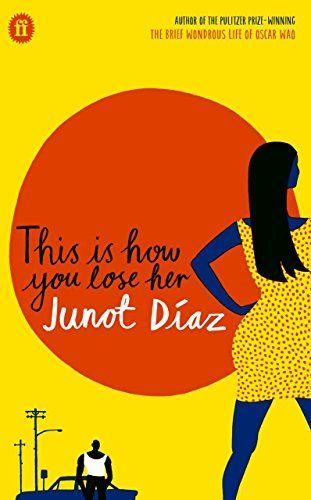
This is how You Lose Her
Junot Diaz's new collection, This Is How You Lose Her, is a collection of linked narratives about love - passionate love, illicit love, dying love, maternal love - told through the lives of New Jersey Dominicans, as they struggle to find a point where their two worlds meet. In prose that is endlessly energetic and inventive, tender and funny, it lays bare the infinite longing and inevitable weaknesses of the human heart. Most of all, these stories remind us that the habit of passion always triumphs over experience and that 'love, when it hits us for real, has a half-life of forever.'
Reviews
sash.@sashaolomon
Kritika Narula@kitkatreads
Laura Mauler@blueskygreenstrees
Andrew John Kinney@numidica
tiff@tiffw
Chiyeung lau@chiyeung
Caroline Mao@northcaroline
Victoria Bartlett@lushrain
Rocio Rivas@rocioreads
Emma Renfrey@emmapaige
Mahasin S Ameen@fivefootsmall
1111111@sssvivivi
Deana Gomez@dzgomez
Adine@axixe
Alix@malixmurphy
Ryan Mateyk@the_rybrary
Kattia@kattia
Cristi Marian@cristi-books
carissa r@cariss_a
Jude@joodith
Jb@jbr1992
JoAnna@lilipuddingdog
eileen sheats@ex_wife
Brian@briany